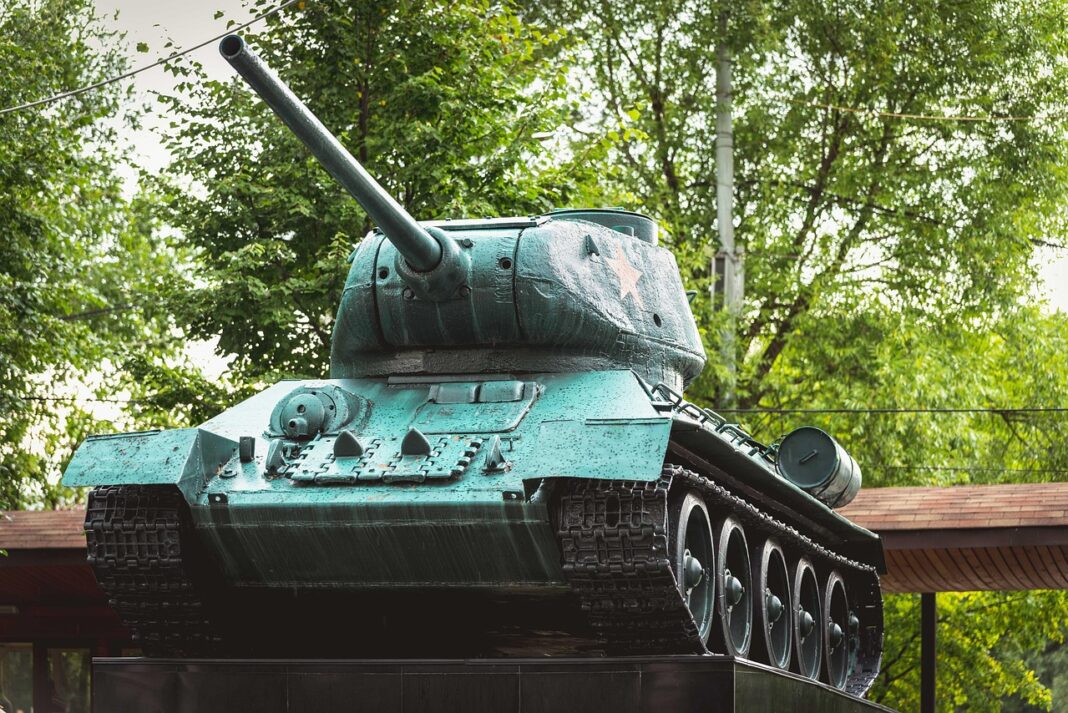Author: Robert Břešťan, HlídacíPes.org
Brainwashing from school age, altered or entirely fabricated versions of historical events, and the wholesale rewriting of history are standard tactics of totalitarian and autocratic regimes. In today’s Russia, there’s a clear effort to embed an officially sanctioned view of history into the entire education system. This is also a component of Russia’s hybrid warfare against the West.
In August 2023, Russian authorities unveiled a newly revised edition of history textbooks for 10th and 11th graders. The overhaul was overseen by Vladimir Medinsky, a former culture minister and head of the Russian Military Historical Society.
Anatoly Torkunov, rector of Moscow’s prestigious MGIMO university—known for training both Russian diplomats and spies—also contributed to the content. This was followed by revisions to textbooks for 5th to 9th graders. The changes primarily focus on the circumstances surrounding the Soviet Union’s collapse, the history of Putin’s rule, and the ongoing war against Ukraine.
The West as an Eternal Threat
The intent behind the revisions is clear from the content, as reviewed by the EU’s East Stratcom Task Force team for strategic communication: to portray the West as a perpetual threat and to outline all the “right” reasons for launching a “just” war against Ukraine.
The textbooks reinforce in pupils and students the notion that the Cold War never truly ended, with the 1990s merely serving as a brief pause in the confrontation between the West and Russia.
The textbooks even include a practical section. For instance, pupils are tasked with correctly marking on a map the territories that became part of Russia in 2022. Tomáš Kopečný, the Czech government’s envoy for Ukraine’s reconstruction, highlighted this in an interview with HlídacíPes.org:
“When Russia prints maps for school atlases today, they already include areas still controlled by the Ukrainian army as part of their territory. They even mark precisely where each mine is, how many tons of which minerals or metals are there. In their logic, this matters: they’re going after something that enriches them.”
Last year, Kremlin ideologues also set about rewriting history textbooks for university students. A 500-page tome presents the Kremlin’s version of Russian history from antiquity to the present.
The so-called “Great Patriotic War”—specifically the years 1941 to 1945—takes center stage, with no mention of the Molotov-Ribbentrop Pact. However, the “special military operation” against Ukraine is prominently featured.
In response to these developments, the European Parliament adopted a resolution in late January this year titled “On Disinformation and the Falsification of History by Russia to Justify Its War of Aggression Against Ukraine.”
The text states, among other things: “The European Parliament condemns the systematic falsification and distortion of history by Russia, aimed at justifying its war of aggression against Ukraine, fostering imperial nostalgia among the Russian population, securing support for its actions internationally, and destabilizing the EU.” It also warns of the Kremlin’s efforts to “erase Ukraine’s cultural and historical identity.”
Countering the Information Chaos
In the Czech Republic, too, it’s been possible to observe how Russia’s rewriting of history and its battle over historical narratives have become part of hybrid warfare. Whether it’s the disputes over Marshal Konev’s statue and his role in Czechoslovakia’s history or fabrications tied to the 1968 invasion, the pattern is clear.
In 2015, a propaganda documentary aired on Russia’s state-run Rossiya 1 channel about the August 1968 events sparked a Czech-Russian diplomatic spat. It’s telling that Russian archives, which could clarify and refine much of this history, remain closed to foreign researchers.
Before Russia’s 2022 attack on Ukraine, it was common for Russia to organize and fund traveling exhibitions that framed the events leading up to World War II from a Russian perspective, emphasizing the theme of Western betrayal.
These featured photographs of foreign leaders like Daladier and Chamberlain with Adolf Hitler, facsimiles of documents, and images from the signing of the British-German non-aggression pact on September 30, 1938, as well as records of German Foreign Minister Joachim von Ribbentrop’s visit to Paris.
Notably absent, however, was any mention of the Molotov-Ribbentrop Pact—the non-aggression treaty between Nazi Germany and the Soviet Union signed in August 1939.
Years ago, security experts warned that one of the key motifs Russian propaganda consistently exploits in the Czech Republic—and Slovakia—is the historical betrayal by Western powers tied to the Munich Agreement, now updated with the narrative that such a betrayal could easily recur within the European Union.
The Czech counterintelligence agency BIS has also highlighted the misuse of tailored historical interpretations for hybrid warfare and propaganda in its annual reports.
According to BIS, young people should leave school with a far broader knowledge of modern history, “because only such a citizen will be able to navigate the information chaos and distinguish disinformation from reality.”

